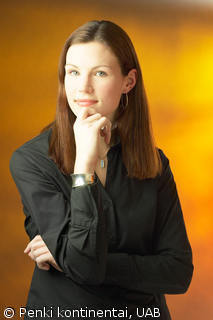Oxford University this week said it was creating the Oxford Internet Institute, a multidisciplinary center dedicated to studying the Internet's societal impact.
Published:
13 May 2001 y., Sunday
The center was made possible by a $14.23 million donation from the Shirley Foundation, matched by public funds of $7.11 million from the Higher Education Funding Council For England (HEFCE).
Dame Stephanie Shirley, founder of the Shirley Foundation, says she gave the money because she wanted to ensure that Britain was an authoritative leader in understanding the social and ethical issues and global concerns emerging from Internet use. The institute will be an international center for collaboration among universities and public and private sectors. But, because it is based at academically independent Oxford University and is funded by donations, commercial interests won't be reflected in the institute's studies and reports.
Everyone involved in creating the institute has an agenda for participating. England's Secretary of State for Education David Blunkett says that one of the center's top priorities will be research issues surrounding cryptography, intellectual property, and security.
Meanwhile, HEFCE's chief executive Sir Brian Fender is excited that the institute will create a technology-based academic community that will position the United Kingdom as a global leader when it comes to addressing social concerns of the Internet.
The primary research programs will focus on the fundamental shifts in human behavior and interactions as a result of technology, comparative media law and policy, and creating new educational software.
Šaltinis:
InformationWeek
Copying, publishing, announcing any information from the News.lt portal without written permission of News.lt editorial office is prohibited.
The most popular articles
 As families across the United States struggle to keep their homes and their jobs, they are having to make all kinds of sacrifices - including giving up their pets.
more »
As families across the United States struggle to keep their homes and their jobs, they are having to make all kinds of sacrifices - including giving up their pets.
more »
 Unless you are lucky enough to be sitting in a park with a laptop, then if you are reading this you are probably in one of the 160 million buildings in the European Union.
more »
Unless you are lucky enough to be sitting in a park with a laptop, then if you are reading this you are probably in one of the 160 million buildings in the European Union.
more »
 Germany's decided to ban the cultivation - and sale - of maize with genetically modified organisms, also known as GMOs.
more »
Germany's decided to ban the cultivation - and sale - of maize with genetically modified organisms, also known as GMOs.
more »
 U.S president Barack Obama has lived up to his election night promise. A new First Dog will soon be gracing the lawns of the White House.
more »
U.S president Barack Obama has lived up to his election night promise. A new First Dog will soon be gracing the lawns of the White House.
more »
 Ninio - bull elephant to come to Poznan Zoo in Poland - is suspected of being gay and unlikely to be much help in creating any baby elephants at the zoo.
more »
Ninio - bull elephant to come to Poznan Zoo in Poland - is suspected of being gay and unlikely to be much help in creating any baby elephants at the zoo.
more »
 The New York town of Hempstead bought five Nigerian dwarf baby goats for removing weeds at a park.
more »
The New York town of Hempstead bought five Nigerian dwarf baby goats for removing weeds at a park.
more »
 Pensioner Bernhard Nermerich and his wife Michaela, love nothing more than preparing to celebrate Easter.
more »
Pensioner Bernhard Nermerich and his wife Michaela, love nothing more than preparing to celebrate Easter.
more »
 The impact of poverty on women and the work-life balance are just two issues the Women's Rights Committee had tackled over the last Parliamentary term.
more »
The impact of poverty on women and the work-life balance are just two issues the Women's Rights Committee had tackled over the last Parliamentary term.
more »
 No-one has bought it yet but this wedding dress is already proving to be a tourist attraction in Romania.
more »
No-one has bought it yet but this wedding dress is already proving to be a tourist attraction in Romania.
more »
 More than 100 Irish women leaders (and some men), from all walks of life, came together to exchange views on the economic crisis at a special one-day conference entitled "Challenges to Irish women in the current economic climate" held in Dublin on 4 April.
more »
More than 100 Irish women leaders (and some men), from all walks of life, came together to exchange views on the economic crisis at a special one-day conference entitled "Challenges to Irish women in the current economic climate" held in Dublin on 4 April.
more »